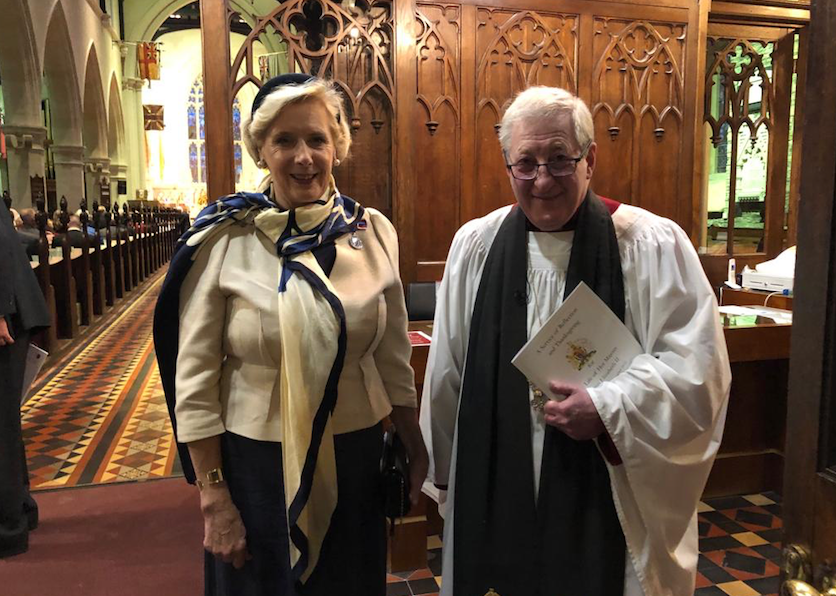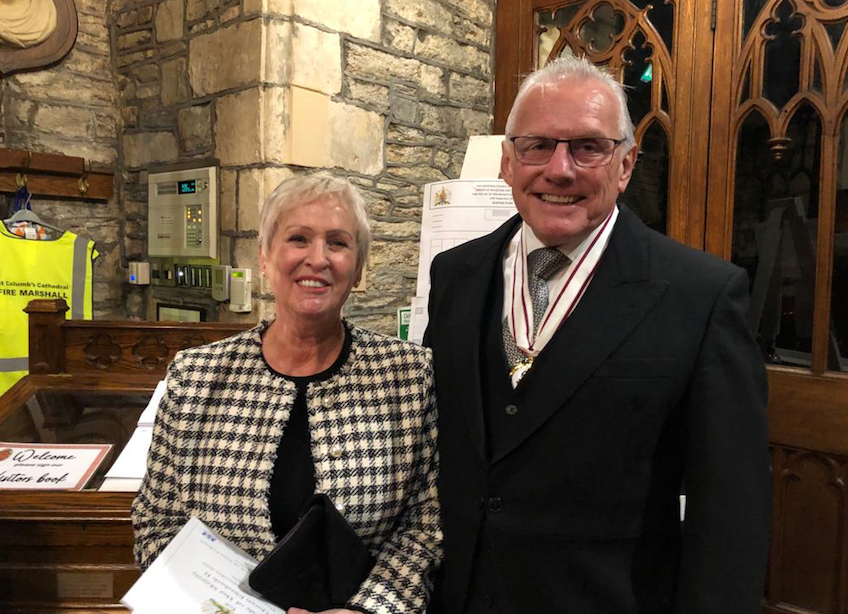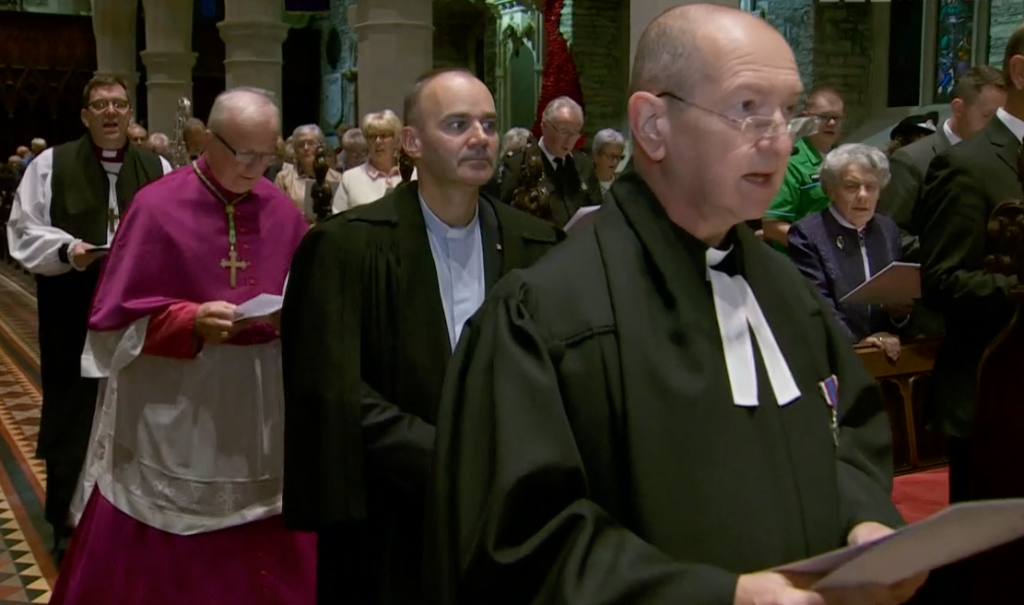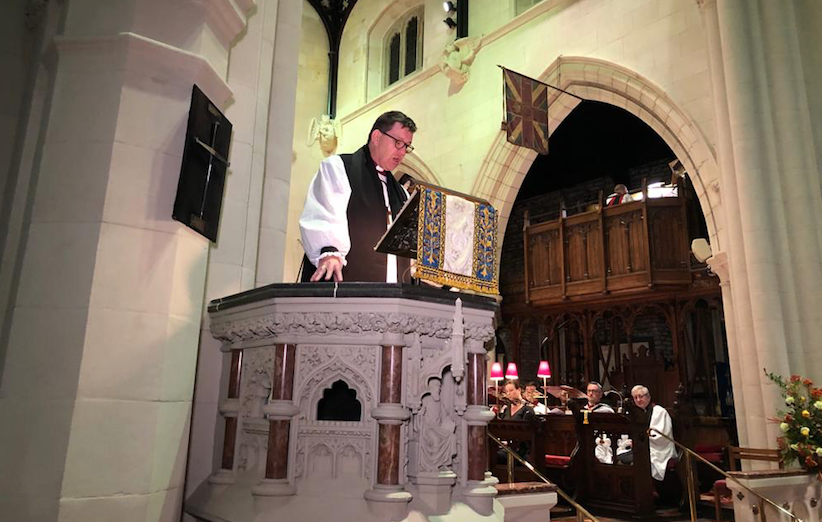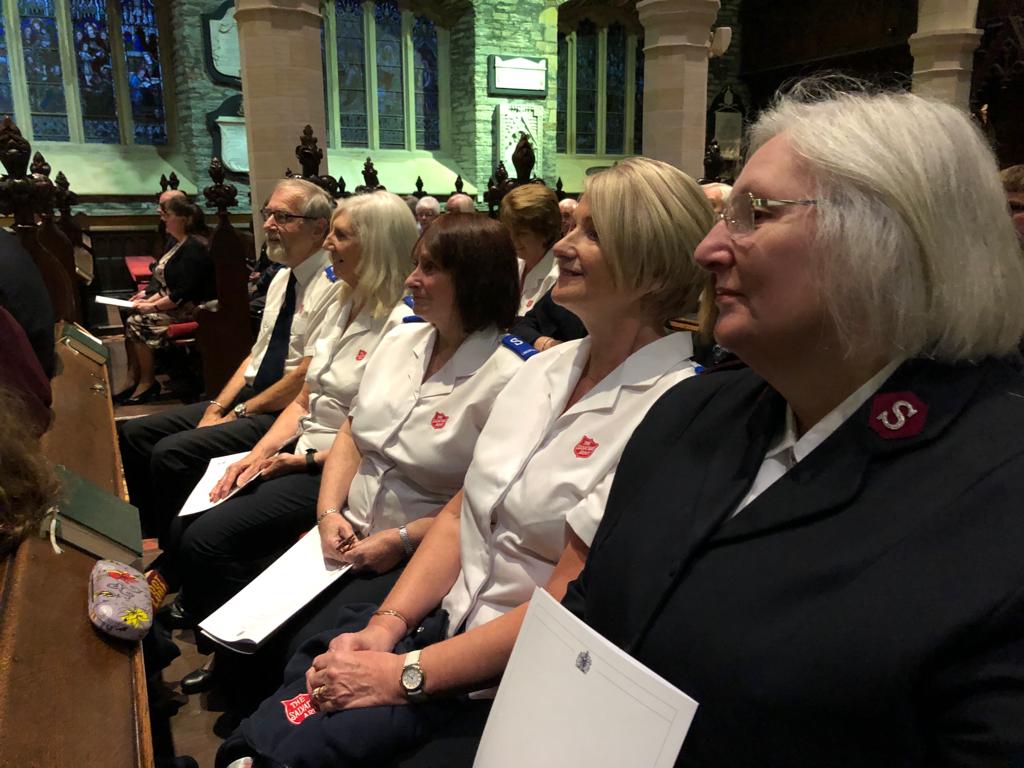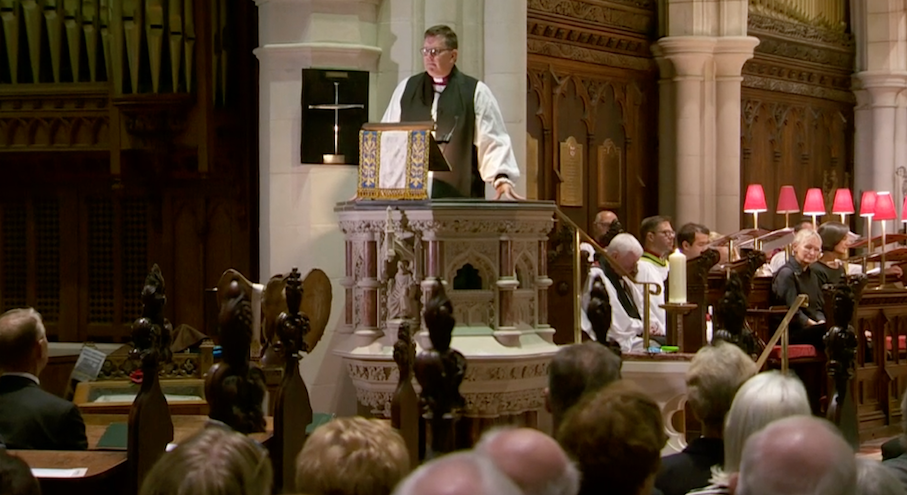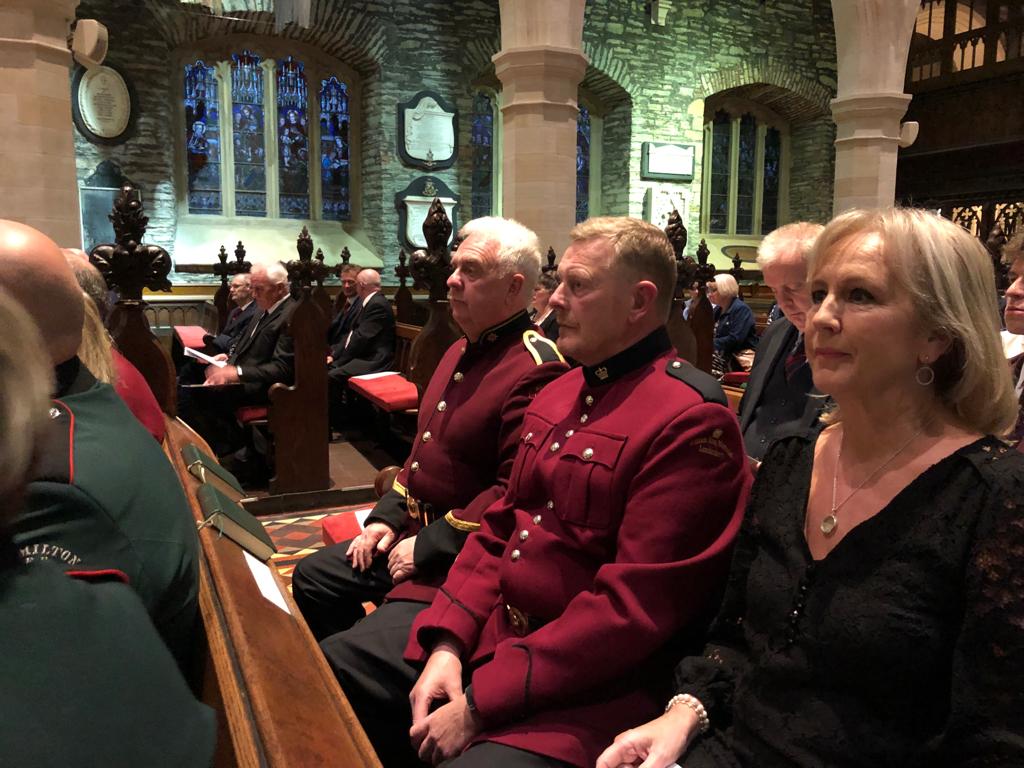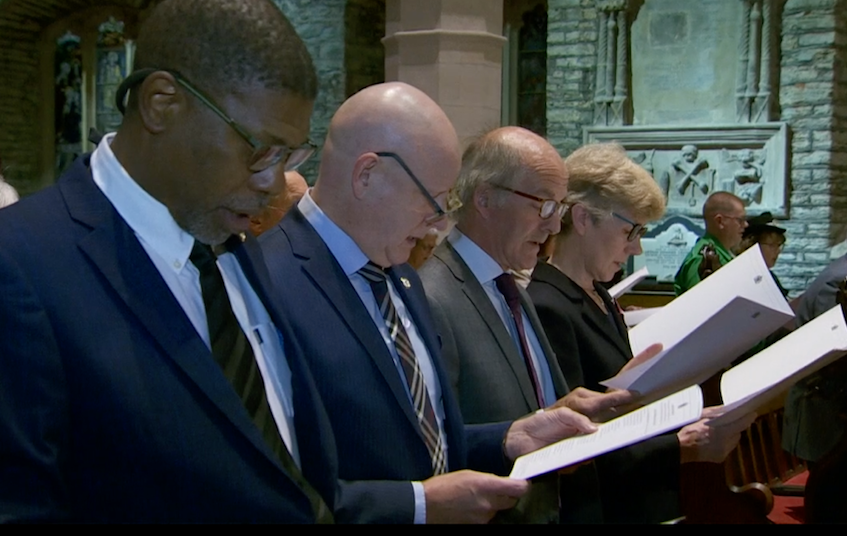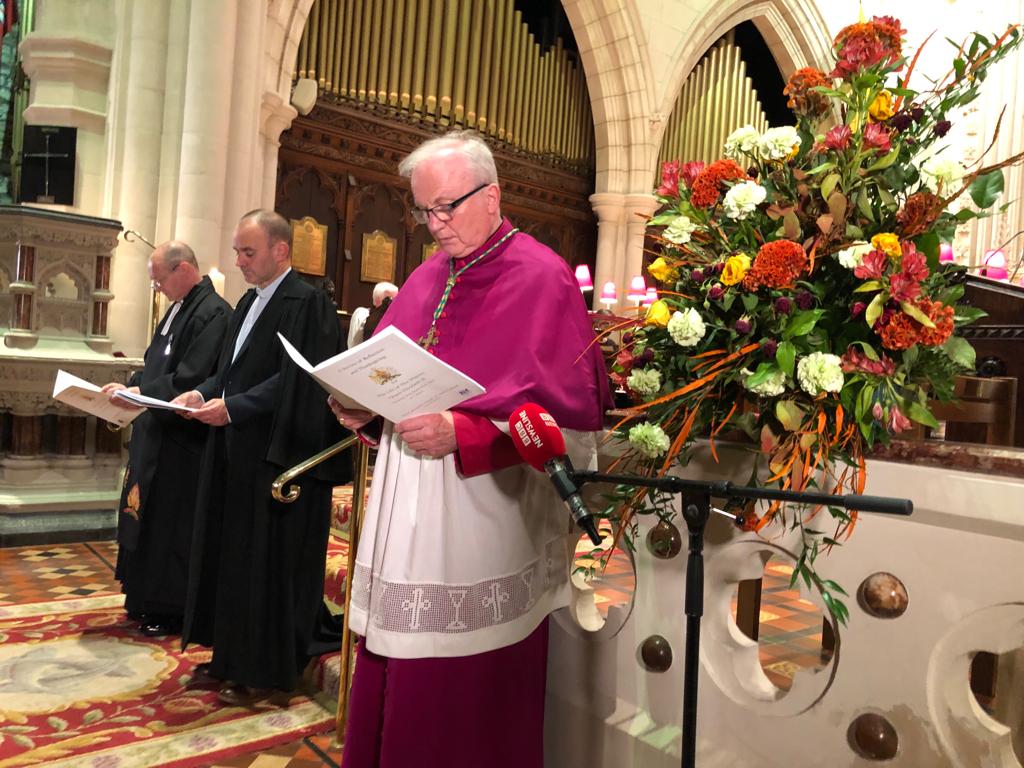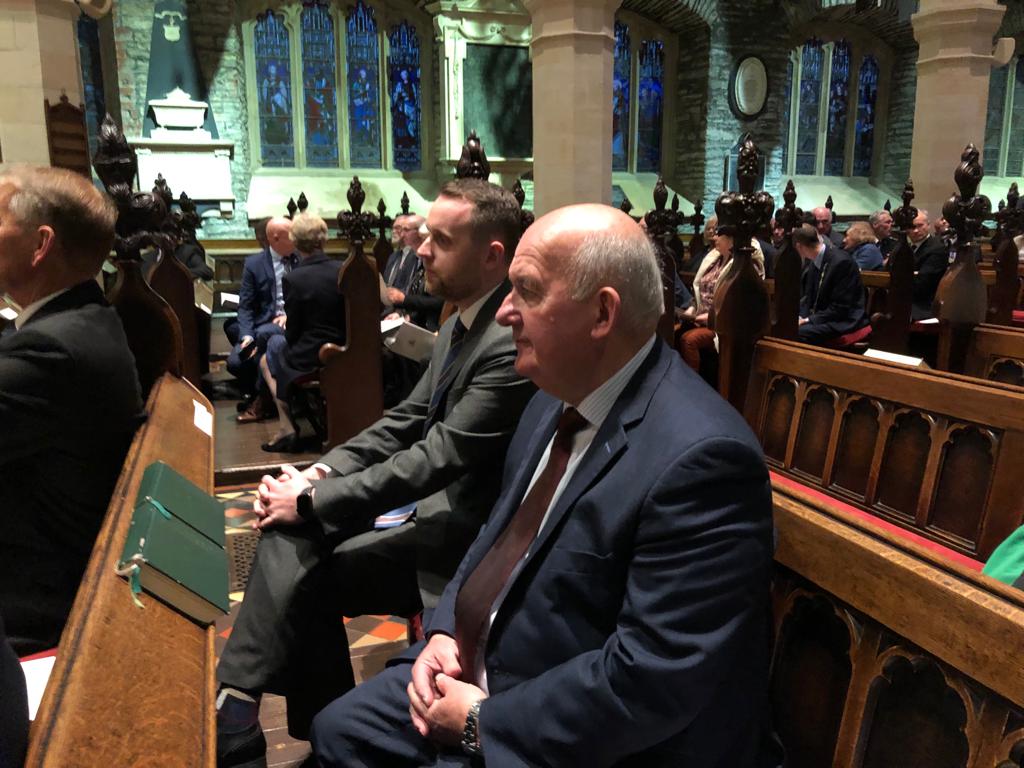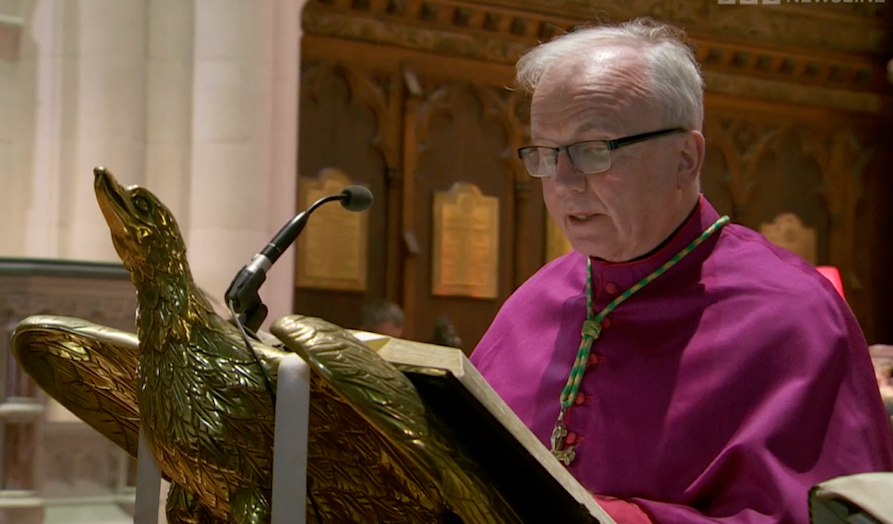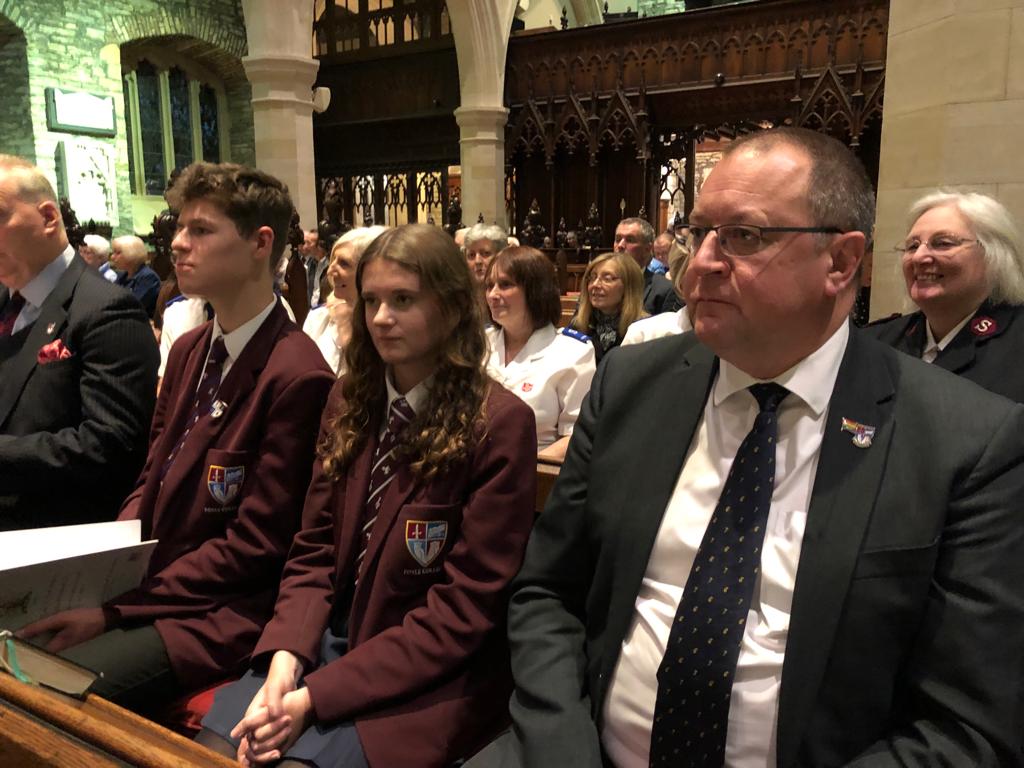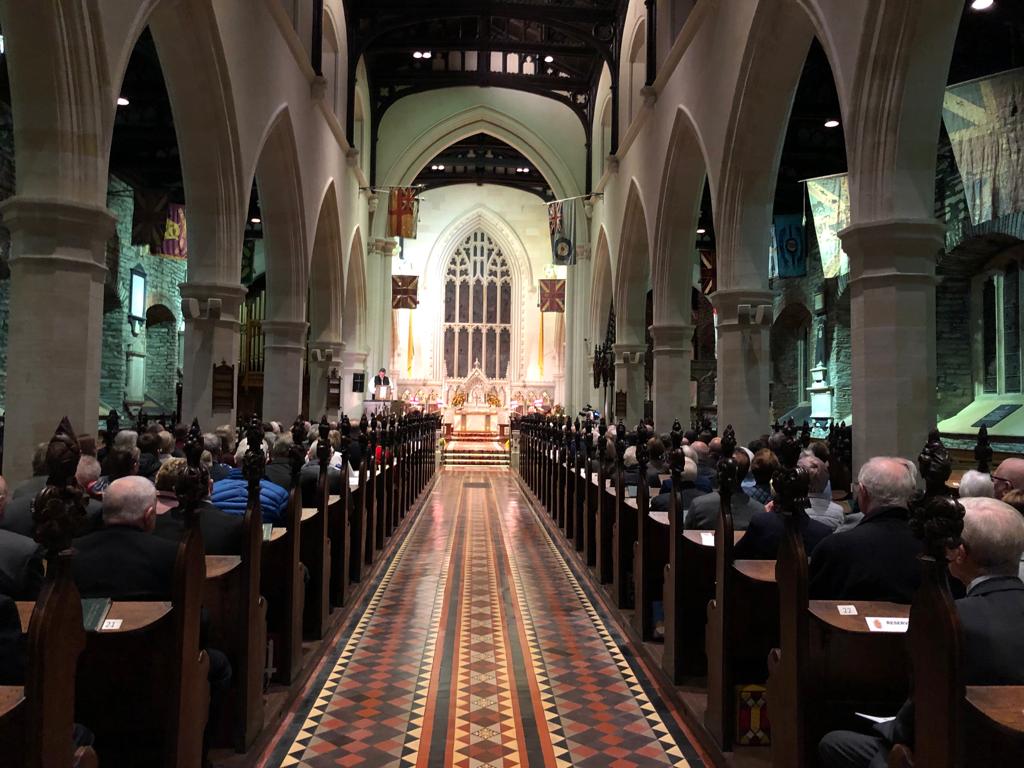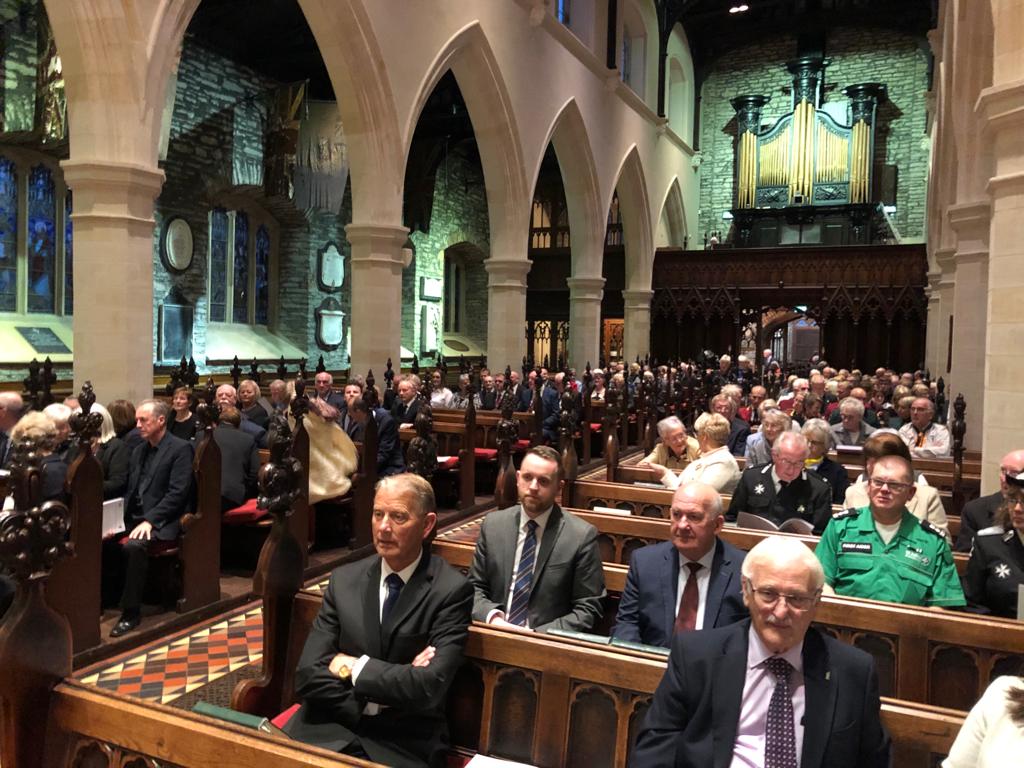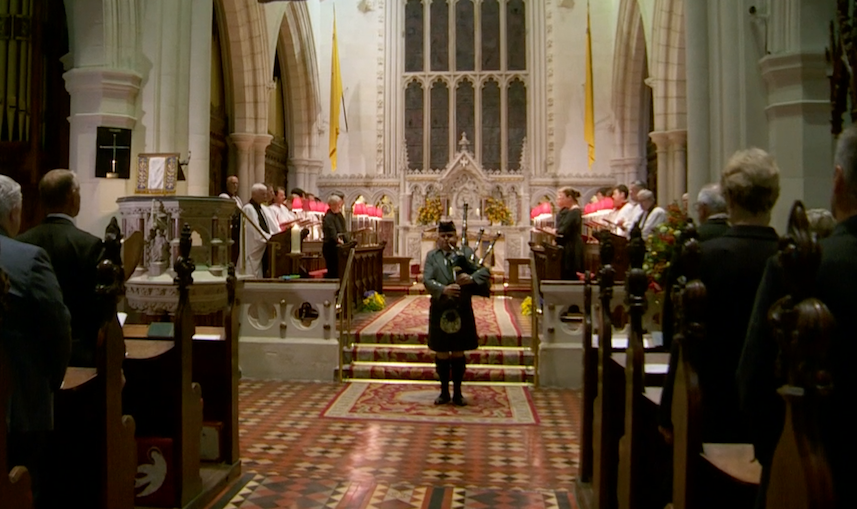The Late Queen Elizabeth II’s “significant” contribution to reconciliation and peace building in Ireland was recalled on Thursday evening, 29th September, at a service in Londonderry. The tribute was paid by the Bishop of Derry and Raphoe, Rt Rev Andrew Forster, in his sermon at a diocesan and civic Service of Reflection and Thanksgiving for The Life of the Late Queen, which was held in St Columb’s Cathedral.
The service was led by the Dean of Derry, Very Rev Raymond Stewart, and leaders from the four main local Christian denominations took part. During the service, His Majesty’s Lord Lieutenant for the County of Londonderry, Mrs Alison Millar, and His Majesty’s Vice Lord Lieutenant for the County Borough of Londonderry, Mr Ian Crowe MBE, jointly lit a candle in an act of commemoration.
Bishop Andrew told the congregation that St Columb’s Cathedral was the oldest building within the City Walls and that among its many historical treasures – “padlocks and cannon balls, bibles and chalices, prayer books and paintings” – was a visitors’ book, signed by King George and Queen Elizabeth and their daughter, the then-Princess Elizabeth, in 1945, when they flew to Northern Ireland during a V. E. tour and visited the Cathedral for prayers of thanksgiving for deliverance from war.
In remembering the Late Queen, Bishop Andrew evoked a prayer of Saint Columba’s. “This evening, we give thanks to God for a life marked by duty, service and devotion, and all of us recognise that Her Late Majesty’s long life was motivated by and empowered by her faith in God. For her, as it can be for each one of us, God truly was ‘a kindly shepherd behind me, today, tonight and forever’.”
Bishop Andrew said the late Queen’s faith had been a key factor in her peace building. “I’m sure all of us would understand and believe that it was her faith that both inspired and compelled her to make such a significant contribution to peace and mutual understanding in this island. She showed us that seemingly small steps can open the door of significant engagement and change – a handshake, a few words in another language, the crossing of a street – it was an example, an inspiration for us and for others to take large steps, important steps, to realise that reconciliation matters. And I wonder what [are] those small steps in her example that we can make to make our community a better place?
“In 2014, reflecting on some of her work in peace building, she said this: ‘For me the life of Jesus Christ, the Prince of Peace, is an inspiration and an anchor for my life, a role model of reconciliation and forgiveness. He stretched out his hands in love, acceptance and healing, and Christ’s example has taught me to respect and value all people of whatever faith and none.’
“Do you know, in this city that we all love, no matter what our background or story is, and in this county that we all love, we are seeking to write a better history, a new history, not defined by division and distrust but built on reconciliation and peace building. And we have to realise and to understand that peace and reconciliation is a very delicate thing, to be handled carefully, to be underpinned – as the Queen said – by respect and value of all people.
“And as we gather tonight to reflect and give thanks for Queen Elizabeth, it would be good for each of us to reflect on the example that she was in this land and ask ourselves how we follow that example in our everyday life? I think Queen Elizabeth inspires us to continue to play our part in society. And she shows us that characteristics such as duty, service and devotion should never go out of fashion.
“Sometimes those words are seen to be old-fashioned and ‘out of touch’. Duty, devotion and service have been shown in the life of the Queen to build a better society. When we respond to the call for duty to God and our community, to service to both neighbour and stranger, to devotion to Christ and to his will, we build a better society. That’s what Queen Elizabeth calls us to do and that will be her lasting legacy in this land and much further afield.”
